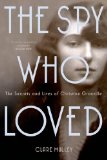Summary | Excerpt | Reading Guide | Reviews | Beyond the Book | Readalikes | Genres & Themes | Author Bio

Critics' Opinion:
Readers' Opinion:
First Published:
Jun 2013, 448 pages
Paperback:
May 2014, 464 pages
 Book Reviewed by:
Book Reviewed by:
Sarah Sacha Dollacker
Buy This Book
With the exception of some Lithuanian princely families, historically Poland's large enfranchised class, or 'szlachta', did not hold aristocratic titles. It was traditional for them to regard each other as equals, to be addressed as 'dear brother', and even – when Poland was still an independent country – to elect the Polish king. But many of the ancient nobility became so impoverished that they were effectively peasants with coats-of-arms. And many families who sported illustrious titles, as opposed to simply having noble names, owed these to their imperial overlords, who were, as a rule, buying favours. It was the Russian tsar Nicholas I who granted the Skarbeks' title in the mid-nineteenth century. The fact that Jerzy Skarbek was not descended from this branch of the family made little difference to his social status. He was known to be a member of one of the oldest families in Poland, and was certainly accepted as an aristocrat in the circles that he believed mattered [* Jerzy Skarbek referred to himself as Count, and was named as such in his press obituary and on his tombstone. Christine listed her parents as Count and Countess Skarbek on her British Certificate of Naturalisation, dated December 1946, and elsewhere. For Polish genealogy and titles see Tomasz Lenczewski, 'The Marriage of Coats of Arms and Accounts', Rzeczpospolita, 22 VII (2008)].
Jerzy Skarbek certainly felt the honour of his family keenly, and any perceived slight rankled. As a child Christine remembered him rising from the table when a guest claimed descent from the last Polish king, Stanis?aw August Poniatowski. '[And I am] descended from a cobbler!' Jerzy responded with some style, referring to the medieval Krako'w cobbler who had killed the fabled Wawel dragon by enticing it to devour a sheepskin stuffed with sulphur, and from whom he claimed descent.4 Few families boast a dragon-killer among their ancestors, let alone one who then married a king's daughter. There were plenty more such stories in which the Skarbeks' history was intertwined with Polish legends, and these would later fuel Christine's own deeply held sense of personal, family and national pride. The one piece of jewellery that she wore throughout her life was not a wedding ring, but a Skarbek signet ring. This was designed with a slice of iron embedded in its face to commemorate the defiant eleventh-century Skarbek who would not bow to a German emperor for all his war chests of gold. Instead the proud Pole defiantly tossed his gold ring into the German coffers, shouting, 'Let gold eat gold, we Poles love iron!' The insulted emperor was later routed in a great battle when Polish swords indeed proved their might over the mercenary imperial German forces.
Not all notable Skarbeks had been so warlike, however. The nineteenth-century count Fryderyck Florian Skarbek was a highly respected economist, historian, author and social and political activist who, as president of the Charities Council, had introduced many important social reforms. Count Fryderyck had grown up on the family estate of Zelazowa Wola in the flat but not particularly productive plains west of Warsaw, where he was tutored by a distant relative called Nicholas Chopin. The estate was not hugely rich, and the house itself was quite modest, with the traditional long stretch of low rooms flanking a four-column portico entrance with balcony above. Despite the grand piano in the drawing room, it was essentially a comfortable family home, with geese and ducks free to wander on the porch. When the tutor's son was born in 1810, he was named after the count, who had sensibly been invited to be the boy's godfather. Fryderyck Chopin's first printed work, a polonaise, would be dedicated 'to Her Excellency Countess Victoria Skarbek, composed by Fryderyck Chopin, a musician aged eight'.5 Count Fryderyck probably paid for the piece to be published, which would account for its dedication to his sister, and he went on to be one of Chopin's earliest and most ardent supporters. The Skarbek family remained immensely proud of the connection, especially when, after Chopin's death in 1849, he was widely regarded as the embodiment of Poland's nationalist politics and poetic spirit.
Excerpted from The Spy Who Loved by Clare Mulley. Copyright © 2013 by Clare Mulley. Excerpted by permission of St. Martin's Press. All rights reserved. No part of this excerpt may be reproduced or reprinted without permission in writing from the publisher.




Discovery consists of seeing what everybody has seen and thinking what nobody has thought.
Click Here to find out who said this, as well as discovering other famous literary quotes!
Your guide toexceptional books
BookBrowse seeks out and recommends the best in contemporary fiction and nonfiction—books that not only engage and entertain but also deepen our understanding of ourselves and the world around us.